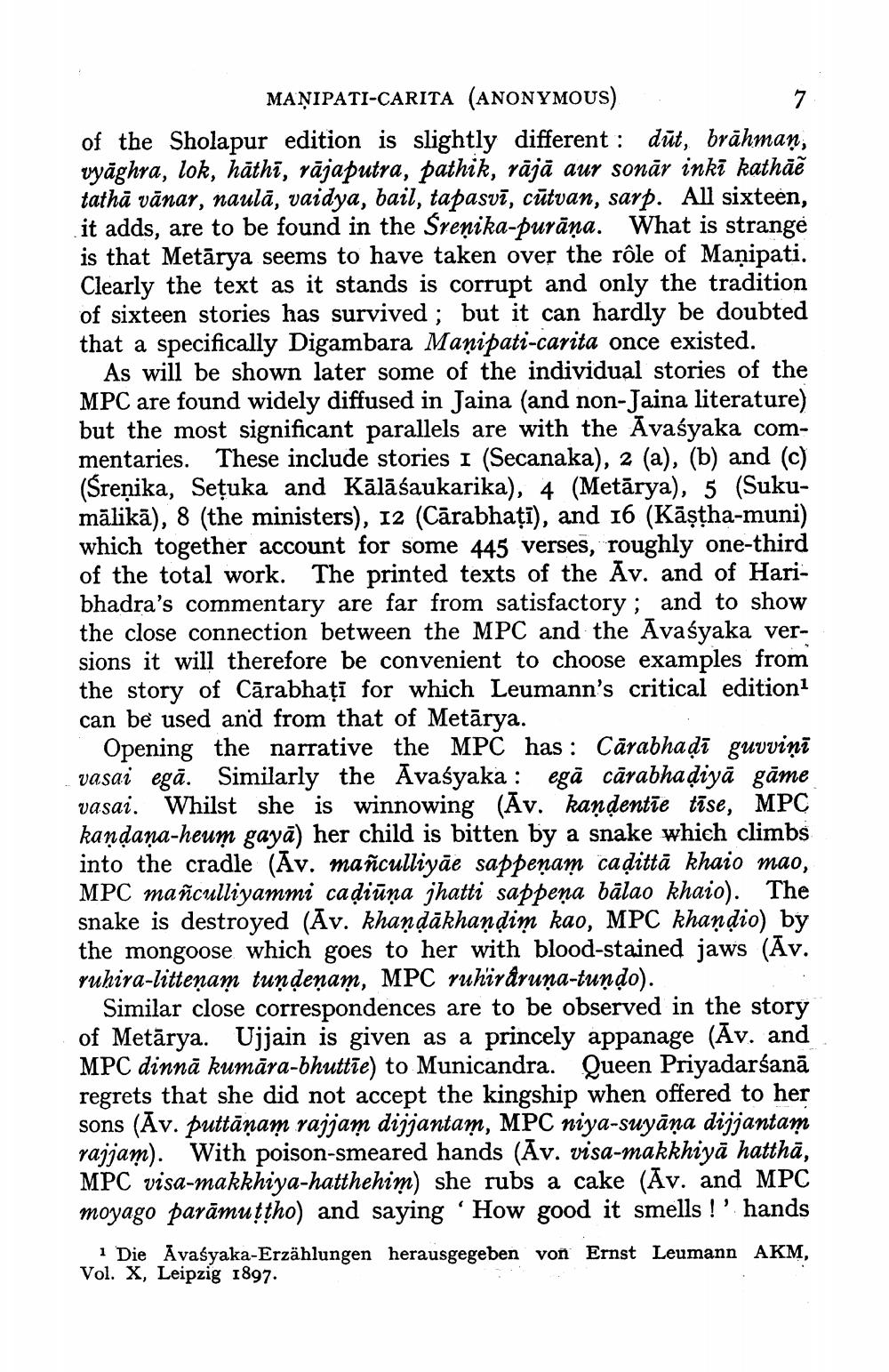________________
MAŅIPATI-CARITA (ANONYMOUS) of the Sholapur edition is slightly different : düt, brāhman, vyāghra, lok, hāthī, rājaputra, pathik, rājā aur sonār inki kathā tathā vānar, naulā, vaidya, bail, tapasvī, cūtvan, sarp. All sixteen, it adds, are to be found in the Grenika-purāņa. What is strange is that Metārya seems to have taken over the rôle of Manipati. Clearly the text as it stands is corrupt and only the tradition of sixteen stories has survived ; but it can hardly be doubted that a specifically Digambara Manipati-carita once existed.
As will be shown later some of the individual stories of the MPC are found widely diffused in Jaina (and non-Jaina literature) but the most significant parallels are with the Avaśyaka commentaries. These include stories I (Secanaka), 2 (a), (b) and (c) (Śreņika, Sețuka and Kālāśaukarika), 4 (Metārya), 5 (Sukumālikā), 8 (the ministers), 12 (Cārabhatī), and 16 (Kāştha-muni) which together account for some 445 verses, roughly one-third of the total work. The printed texts of the Āv. and of Haribhadra's commentary are far from satisfactory; and to show the close connection between the MPC and the Avaśyaka versions it will therefore be convenient to choose examples from the story of Cārabhați for which Leumann's critical edition1 can be used and from that of Metārya.
Opening the narrative the MPC has : Cārabhadi guvvinī vasai egā. Similarly the Āvaśyaka : egā cārabhadiyā gāme vasai. Whilst she is winnowing (Āv. kandentie tīse, MPC kandana-heum gayā) her child is bitten by a snake which climbs into the cradle (Av. mañculliyāe sappeṇam cadittà khaio mao, MPC mañculliyammi cadiāņa jhatti sappeņa bālao khaio). The snake is destroyed (Av. khanļākhandim kao, MPC khandio) by the mongoose which goes to her with blood-stained jaws (Av. ruhira-litteņam tuņdenam, MPC ruhiråruņa-tundo).
Similar close correspondences are to be observed in the story of Metārya. Ujjain is given as a princely appanage (Āv. and MPC dinnā kumāra-bhuttīe) to Municandra. Queen Priyadarśanā regrets that she did not accept the kingship when offered to her sons (Av. puttāṇam rajjam dijjantam, MPC niya-suyāņa dijjantam rajjam). With poison-smeared hands (Av. visa-makkhiyā hatthā, MPC visa-makkhiya-hatthehim) she rubs a cake (Āv. and MPC moyago parāmuttho) and saying 'How good it smells !' hands
1 Die Avaśyaka-Erzählungen herausgegeben von Ernst Leumann AKM, Vol. X, Leipzig 1897.




